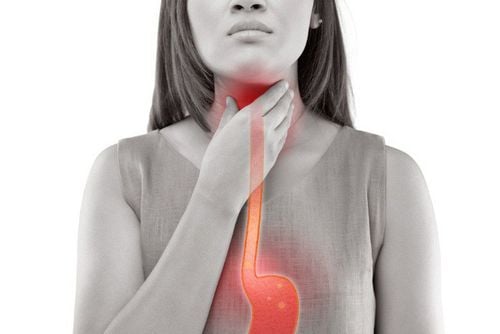Calcium is an essential nutrient that the body needs to form and develop bones. However, it’s important to understand how to use this nutrient effectively for the best results.
1. Calcium plays a crucial role in the body’s functions
Calcium is vital for many essential functions in the body. It is needed for blood circulation, muscle movement, and hormone release. Calcium also helps transmit signals from the brain to other parts of the body.
In addition, calcium is a key component of dental and bone health. It helps bones to become strengthened and densified. If you do not provide enough calcium through your diet as per the recommended daily intake, your body will begin to take calcium from your bones.
2. The body does not produce calcium
The body cannot produce calcium on its own, so you must rely on your daily diet to have the recommended intake. Foods rich in calcium include: dairy products like milk, cheese, and yogurt; dark leafy greens such as kale, spinach, and broccoli; white beans; sardines; calcium-fortified bread, cereals, soy products, and orange juice.

3. The relationship between vitamin D and calcium in enhancing calcium absorption
Vitamin D is essential for better calcium absorption in the body. This means that you won’t fully benefit from a calcium-rich diet if you're deficient in vitamin D. You can obtain vitamin D from certain foods rich in this compound, such as salmon, egg yolks, and certain types of mushrooms. Similar to calcium, some foods with added vitamin D, such as milk… The best source of vitamin D is sunlight. Your skin naturally produces vitamin D when exposed to sunlight. People with darker skin have a reduced ability to produce vitamin D, so they may also need supplements to prevent deficiency of this compound.
4. The importance of calcium, especially for women
Some studies have shown that calcium may help relieve symptoms of premenstrual syndrome (PMS). These studies have concluded that women with PMS tend to have lower calcium and magnesium intake, as well as lower serum levels of these minerals.
5. Calcium intake depends on age-related factors
How can you determine if you're getting enough calcium in your daily diet? The National Institutes of Health (NIH) recommends that adults should consume 1,000 mg of calcium per day. For women over 50 and during pregnancy or breastfeeding, the recommendation increases to 1,200 mg daily. A cup of fat-free, low-fat, or whole milk provides about 300 mg of calcium to the body.
The duration of calcium absorption and the best time for calcium intake are just as important as the dosage. The optimal time for calcium absorption is in the morning, as this is when the body is exposed to the highest amount of vitamin D produced by sunlight, making it easier for the body to absorb and metabolize calcium.
There are specific times when calcium supplementation should be avoided, such as 1-2 hours after a meal, as it may affect the stomach. Additionally, it is not recommended to take calcium in the afternoon or evening, especially after 9 PM. This is because the body’s activities slow down during this time, and taking calcium at this point can hinder its metabolism. Moreover, it may lead to the formation of calcium oxalate, a compound that increases the risk of kidney stones.

6. Health issues that can occur from calcium deficiency
Calcium deficiency can lead to various health problems. In adults, insufficient calcium can increase the risk of osteoporosis, a condition where bones become brittle and weak, making them more prone to fractures. Osteoporosis is especially common in older women, which is why the NIH recommends that they consume more calcium compared to men.
Moreover, calcium is essential for children during their growth and development. Children who do not receive enough calcium to meet the recommended daily intake may not reach their full height potential or may develop other health issues.
7. Using calcium supplements
Not everyone can obtain enough calcium solely from their diet. If you are lactose intolerant, vegetarian, or not fond of dairy products, you may struggle to meet your calcium needs through food alone. Calcium supplements can help you add the necessary calcium to your diet.
Calcium carbonate and calcium citrate are the two most commonly recommended forms of calcium supplements. Calcium carbonate is cheaper and more popular. It can be found in most antacid medications. To be effective, calcium carbonate should be taken with food. On the other hand, calcium citrate does not need to be taken with food and is better absorbed by older individuals who may have lower stomach acid levels.
However, it's important to be aware that calcium supplements can cause side effects. Common issues include constipation, bloating, and gas. Additionally, these supplements may hinder your body’s ability to absorb other nutrients or medications effectively.

8. Negative effects of taking too much calcium
When taking any mineral or nutrient, it is important to follow the recommended dosage. Excessive calcium intake can lead to negative side effects. Symptoms of an overdose may include constipation, bloating, and abdominal discomfort, indicating that you may be consuming too much calcium.
Calcium supplementation can also increase the risk of kidney stones. In some cases, excessive calcium intake can lead to calcium deposits in your blood, a condition known as hypercalcemia. Some doctors believe that unnecessary calcium supplementation may increase the risk of heart disease, while others disagree. More research is needed to fully understand how calcium supplementation might be a risk factor for cardiovascular health.
Calcium is essential for your overall health. Therefore, you can obtain the necessary amount of calcium from various food sources, and if needed, from supplements. The effectiveness of calcium works best when paired with other nutrients like vitamin D, so it's important to maintain a balanced diet. As with any mineral or nutrient, you should monitor your calcium intake to ensure you’re not getting too much or too little.
Please dial HOTLINE for more information or register for an appointment HERE. Download MyVinmec app to make appointments faster and to manage your bookings easily.
Reference source: health.harvard.edu












